Last week The Beat broke the news that IDW’s Editor-in-Chief (and for a time Chief Creative Officer) Chris Ryall was leaving that position. While it came as something of a bombshell to the industry, there was no dark story behind it, just a person leaving a position after 14 years to do other things. In the subsequent days, we were happy to be able to arrange an “exit interview” that goes a bit more into why he left, what he hopes to do in the future, and also a look at a few of the highlights of a very busy 14 years.
In researching this interview, I noticed that many of Ryall’s previous interviews were promotional in nature, which is a part of the marketing side of comics. It’s a rare opportunity to talk to someone who has held such a high level position and just kind of shoot the breeze. I’m very glad that Chris could afford The Beat this opportunity. As I mentioned at the end of the interview, I suspect we’ll see him back in the game pretty soon.
THE BEAT: Let’s get right to it. You decided to leave. Why?
RYALL: It’s funny. After 14 years, when you have any job for as long as I’ve had that one–and I never had any job for anywhere near that amount of time – you know, you kick around other options here or there. You think, Is this the thing I want to keep doing or are there other things I would like to do? Well, I’ve got time to do that. I don’t know if it’s fear or inertia or just a general comfort with the job and the people and the circumstances that keep you in a place. It just reached a point where I thought, well, you know there’s not an infinite amount of time to do things and I’ve done this for as long as I have.
It just feels like it’s time to explore other things and move on from there. I’d taken the position about as far as I possibly could and I accomplished a great many things, probably more than I ever thought I would be able to, that were on my dream list of things to do. And so I thought, OK, let’s go find that new dream. Let’s go see what else what else there is to do in the world of comics or out of the world of comics.
THE BEAT: I would think a lot of people would think that you’re a pretty brave person because being the editor in chief of a major comics company is pretty much the dream job for a lot of people. So it’s a bold move. How long did it take you to come to this decision?
RYALL: I mean it had been a thing in my head, back and forth, for months, if not a couple of years. But you’re right. But any time you’re at a job. it’s a job. So there’s going to be things that aren’t necessarily exactly the way you want them done. But I was also always conscious of how it’s a stupid thing to complain about petty little things that get to me. But if you want to work in comics, it’s certainly one of the few top jobs available to people in the comic business. We tried to keep that in mind too. I don’t take it for granted and also don’t walk away from something that would be really hard to attain. I started with my first official job in comics as the editor in chief of a major comic publisher and the publisher only got bigger and grew more from that. That’s how I broke in!
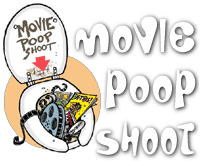
RYALL: Yes. That was a side job, though, I had done a lot of other things. At that point I was an advertising copywriter. I’ve been a corporate speechwriter. I’d worked for Dick Clark. But it was that website job through Kevin Smith that really opened the doors to transition to comics. It’s kind of funny that it was the side job that paid a fraction of my real job that was the thing that really led me to the greatest step in my career.
THE BEAT: Right. I think we probably crossed paths a little bit back then.
RYALL: Is it true that you were you were up for the EIC job?
THE BEAT: Ted wanted me to interview for it, but I was just back into the journalism game and I just didn’t want to move back to the West Coast. I knew that deep down, and that as awesome an opportunity as it would have been, I knew for me it wasn’t right. But I can really sympathize with your decision. Sometimes even though it might be the greatest thing on earth, there might be some circumstances or something personal where it’s not the right thing or it’s time to move on or something like that.
RYALL: It’s funny because at the time I got offered the job I think I’d also been offered a job running Kevin Smith’s comic shop in Westwood in California. It was literally in the same week. So I had to decide do I go be a comic publisher or do I go be a comics retailer. They both had their merits. But as a kid I’d always want to be on the publishing side of things and so it was it was too hard to pass up.
THE BEAT: Chris, we’re really doing a Venn diagram of roads not taken here because had you stuck with that job now you’d have a big long beard and be on Comic Book Men!
RYALL: Well, either that or I would have been out of a job within six months because the New Jersey shop [were Comic Book Men is filmed] has done great but the Westwood store didn’t. It’s probably one of the highest rent districts for retail in Los Angeles. I don’t think the shop lasted long because it had a lot of things going against it just from that location. Who knows where I would have ended up then.
THE BEAT: Yes, that’s right it closed years ago. But IDW 14 years ago was a very different place than it is now. It’s a premier publisher now, depending on what month you’re #4 or #5. But even then, did you ever feel daunted at all? Editor in chief. That’s a pretty big freakin’ title. [laughs]
RYALL: Even more than that I’ve been an officer in the company since 2011 so I was the Chief Creative Officer too. I think that was probably the even more daunting part because as an officer you participate in the company in ways that I didn’t even as the editor in chief. But the whole thing of leaving has been daunting and strange and sad. You go through this entire range of emotions.
THE BEAT: Let’s talk a little bit about the things that you’ve seen and some of the things that you contributed to. What are some of the highlights? What’s going in your clip file?
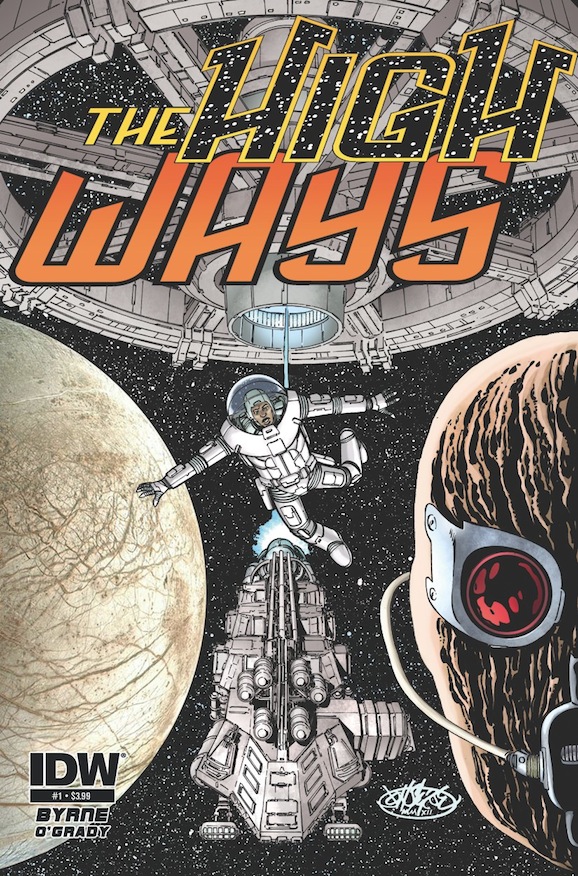
But when I started IDW was a horror publisher that dabbled in licensed things like CSI, and now it’s gone to my being instrumental in bringing in Transformers, which changes the entire scope and face of the company. So that certainly was a huge badge of honor. I’m sure I’m forgetting things after 14 years but getting John Byrne to work on so many different properties over the last decade. Certainly Locke and Key, which to me is probably the premier creator owned book that I’ve ever produced.
God, I don’t know. There’s so many. I mean certainly bringing Rom back was always a goal even when we first started with Transformers and Hasbro in 2005. My second question was “What about Rom?” It was a love of mine that had been out of comics for 30 years. To be able to bring that back is just a huge feat for me, just as the kid who grew up loving this stuff.
I think my entire approach to comics has always been to do things that would make the kid in me who loved collecting comics happy. And I feel in large measure I’ve been able to do that.
THE BEAT: When you were in that meeting and said “What about Rom?” what was the reaction you got?
RYALL: The reaction was, well ,first of all we’re here to talk about Transformers, can you help us launch Transformers. And then second they go “What the hell is Rom? We don’t own that.” It took a number of years to go, “No, no, you do!” I was trying to play lawyer in addition to everything else.
THE BEAT: You know, that’s true. Being an editor calls on so many different things. Being a detective and a lawyer are a few of the job skills needed.
RYALL: And a psychologist.
THE BEAT: [laughs] Well I always put that one at the top! When people ask me how to be an editor I always say the number one thing is being a psychologist,
RYALL: Yes, you have to know how to build good relationships with people to produce the best work together. You figure out early on who needs what degree of handling. Every person is different with what’s going on, what’s going to inspire them to do their best work and that’s always been part of the job, forging that relationship. [I’ve had] some of the closest friendships and creative partnerships that I ever could have imagined. I’ve never met better or more inspiring people in my entire life than through IDW.
THE BEAT: A couple more of the greatest hits. Locke and Key. Did this just come to you and you said “We’re doing it!” or was it a long development process?
RYALL: Ted Adams and I are both big readers and so we would talk about Joe Hill’s book of short stories and how good it was and how it felt like it just had something special. We said, this guy should be working in comics. We reached out to him to adapt some of his stories for comics. And he said, “Well how about this. I’ve got this idea.” He actually sent a few ideas, one was this house with magical keys and this family who had been through this terrible trauma. And we said “That’s the one.” The next thing was trying to figure out the best artist for the job and I knew even then in 2008, it had to be Gabriel Rodriguez because I’d seen what an talent he had, right from the start on the CSI books. I was very careful giving him jobs that were going to keep advancing his skill level to the degree that I knew he was capable of because he was so good. I presented Joe with a few choices. But the other two choices weren’t as good because I wanted to stack the deck in Gabe’s favor! And of course Joe goes, well, yeah that’s our guy.
THE BEAT: Sneaky. Another thing about being an EIC is, it’s great when you have a Babe Ruth on your staff, and you’re lucky enough to have had Scott “Mr. Eisner” Dunbier. Scott obviously just sits around thinking of cool things. What about the artist editions? Was that a tough sell or was it a eureka moment?
RYALL: It wasn’t a tough sell for us. But his previous publisher, for whatever reason, resisted the idea. It just didn’t suit their publishing needs at the time. But for us it was something that [fit right in.] The thing I liked about working for Ted was he was great at encouraging different formats and trying different things and the company was always really nimble about being able to pivot and try these different types of formats. So right from the start he was into the idea. We’re all original art fans.

THE BEAT: Talk about being a detective. Scott’s ability to get these pages is absolutely unbelievable.
RYALL: It’s funny that other publishers have tried to borrow the format. And that’s fine, but they don’t have Scott’s excavation skill.
THE BEAT: OK, I do have to bring up one of the low points however. A recent controversy that touches on a lot of how comics and social media interact is the Aubrey Sitterson situation.
RYALL: The story has gotten spun in such a way that makes us look like the bad guy and it kills me that that’s the case. Because that all came about because somebody said things that companies (that I don’t own) took exception to. But I and a of couple others really staked our jobs on not making a rash decision on having that person removed and keeping the book going and even rewarded that person with a new series. Ultimately that new series didn’t sell. I’m sure there’s all kinds of ideas of why it didn’t sell but the fact is it didn’t sell right from the start and so it had to go away. But somehow rewarding somebody with a new book and not giving in to these idiots who were trying to put pressure on things, got spun to being that we didn’t support this person. That I think is the thing that hurts, because we did. We supported him, kept his job, gave him a new book and it killed me that it didn’t work.
Also at times I was going to go out there and try to defend it, trying to say no, no you’re wrong. And keeping the conversation going and giving a forum for people to say more terrible things just felt like a losing battle. My entire time at IDW I’ve always approached things as the air is much fresher on the high road.
THE BEAT: I think one of the most interesting things about your tenure was how IDW went from just being a publisher to moving into media with the Earp and Dirk Gently tv shows and more things, and also merchandise with the Mini Fun Packs.
RYALL: All those decisions go back to Ted being such an encouraging guy and willing to try all these different things. A lot of people need to be exposed to comics outside of the direct market and [these are things] that can hopefully drive them to become regular comic buyers. We’ve always tried to find ways to expand beyond what people think of as comics and where they can be sold.
THE BEAT: OK. Now switching to your future, I know you wrote several books at IDW. Is that an itch you want to scratch?
RYALL: I always wanted to be a comic writer. So I’ve loved writing comics and being able to do them with people like Gabriel and Ash Wood and having John Byrne and Dave Sim do covers for my books. All of that stuff is such a thrill that I certainly want to carry that on. But I’m not looking to just go be a freelance writer. It all comes down to, I just want to make good comics with people that I love working with. So whether it’s in Idaho or elsewhere, that’s what I’m going to continue doing and that’s the thing that makes me feel a little bit better about leaving.
THE BEAT: Now, Chris, I have heard a little bit of scuttlebutt out there that some other companies might be interested in a person of your caliber. Do you have another dream job in mind?
RYALL: I think there’s always a new dream. I certainly respect a lot of what other people have done out there. You get intrigued by the idea of your skills and creator pool and everything else that could be of benefit. So sure. I know I’m being vague.
THE BEAT: I knew you would be but I had to ask! Last question and to put on your industry hat. What would you say is the greatest opportunity for the comics industry right now and conversely, what do you think is the greatest challenge?
RYALL: In reverse, the greatest challenge right now remains the ability to get comics into enough people’s hands. The overall spin on the numbers has been, it paints a really bleak picture for people when they talk about shops closing, or that they’ve decided to drift away from this publisher forever because they don’t like their current output or that kind of thing. You can look at things one of two ways. You can think, man things are bleak. But then you go, wow, a bunch of shops opened and there’s books being sold in college bookstores and outside of the usual markets, and there’s access to them digitally that led people to other things. It’s kind of that old story where people have been trying to sound the death knell for comics for 80 years and comics have always persisted. And I certainly think that’s still the case.
I believe in the industry and the readers and the retailers and I feel very good about where things are heading in the future. Finding different means to expose people to this content is a key. Just relying on the direct market retailers to do everybody’s work for them and spread work that way is not going to get it done. I think the distributors and publishers have it on their shoulders as well to figure out ways to make it a more viable business so it’s not just people at the top who profit. A few down months should never mean the downfall for any store. But I know that sometimes that’s the case because of margins. There’s no easy, short answer to it, obviously, but there’s a lot of things people can do. [The current situation] is forcing the entire industry to actually look at things in a different way and not just sit back and do business as usual.
THE BEAT: Right. You know, change is opportunity. I certainly don’t think that you’ll be missing for too long. That’s my guess. So good luck!
RYALL: Thanks, Heidi, I appreciate it.
[This interview has been edited for clariy and length.]



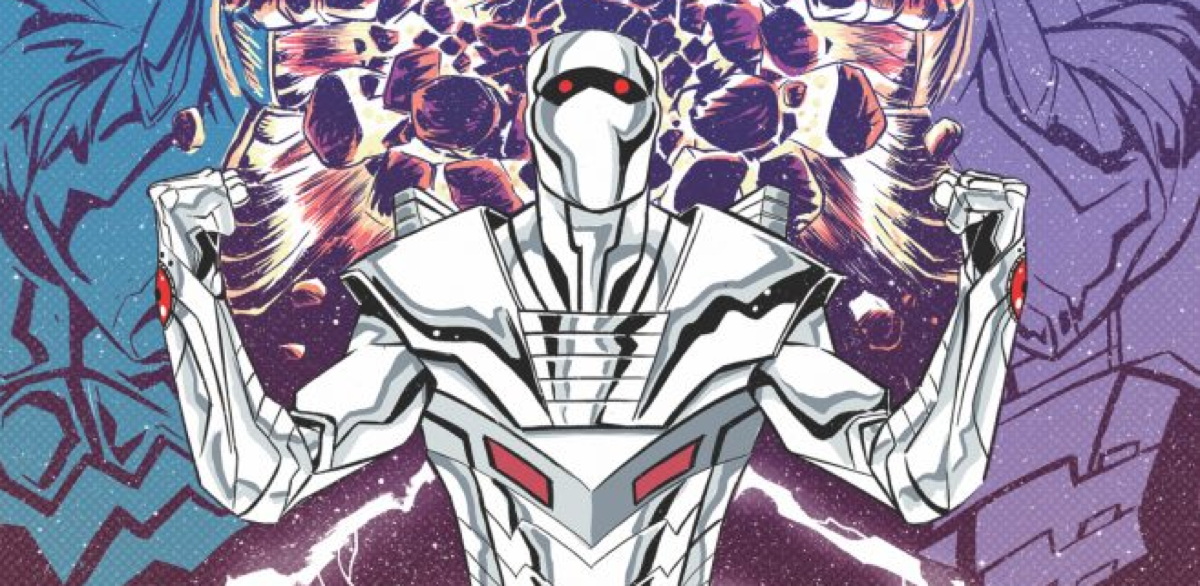
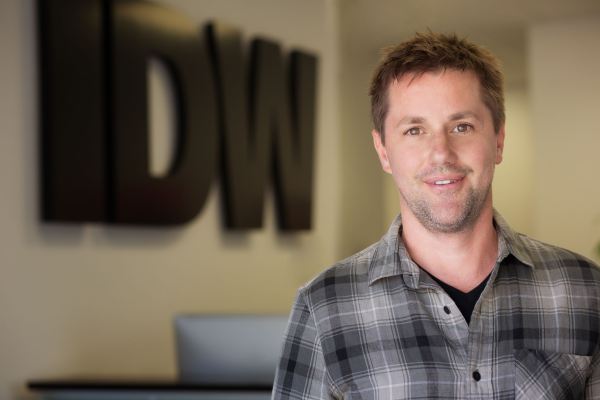
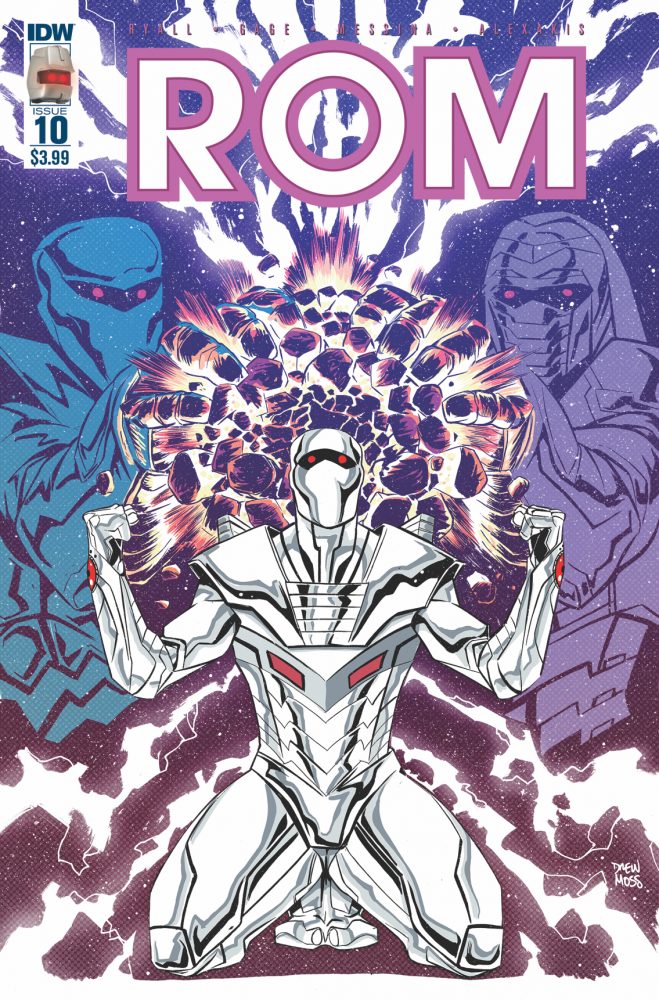
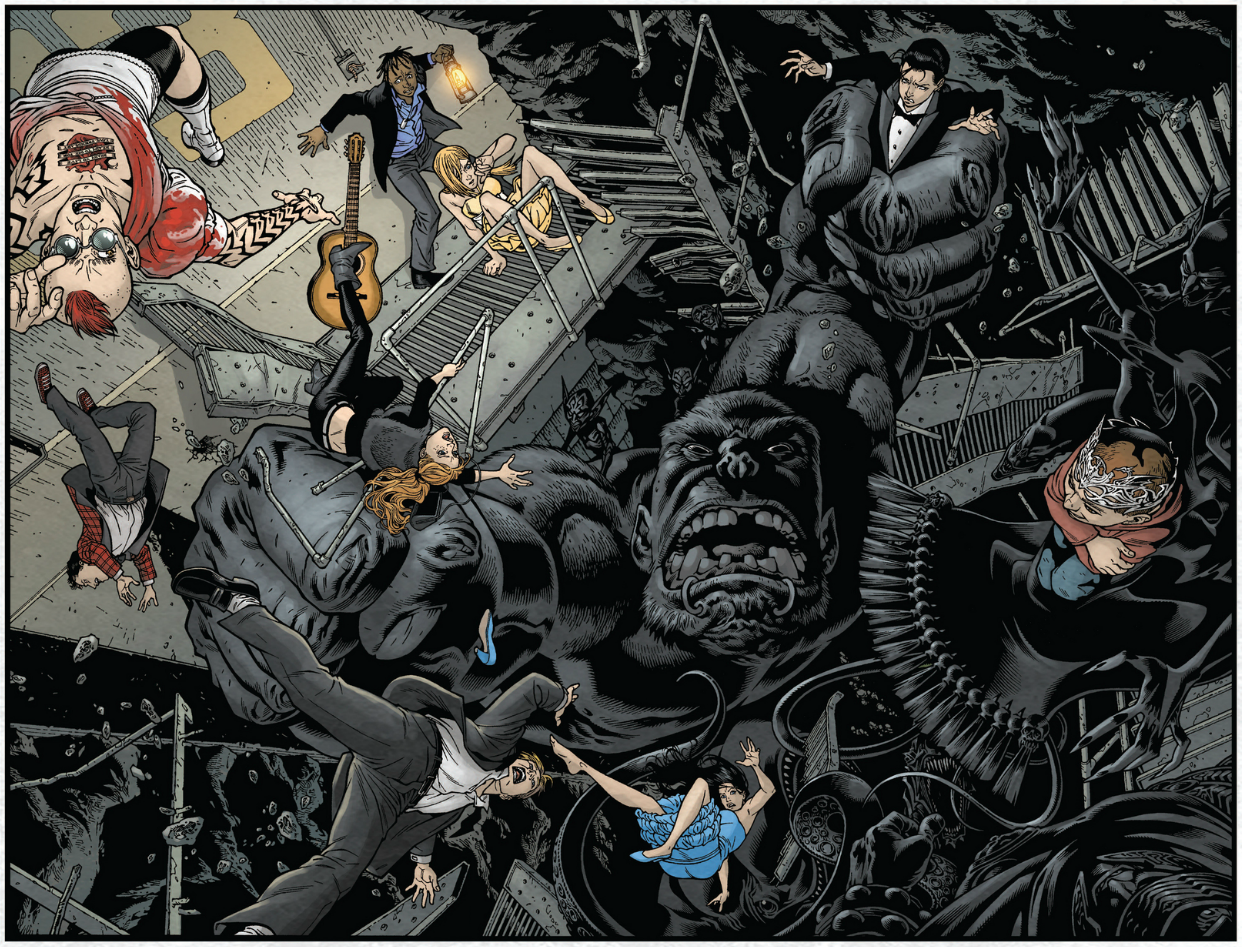
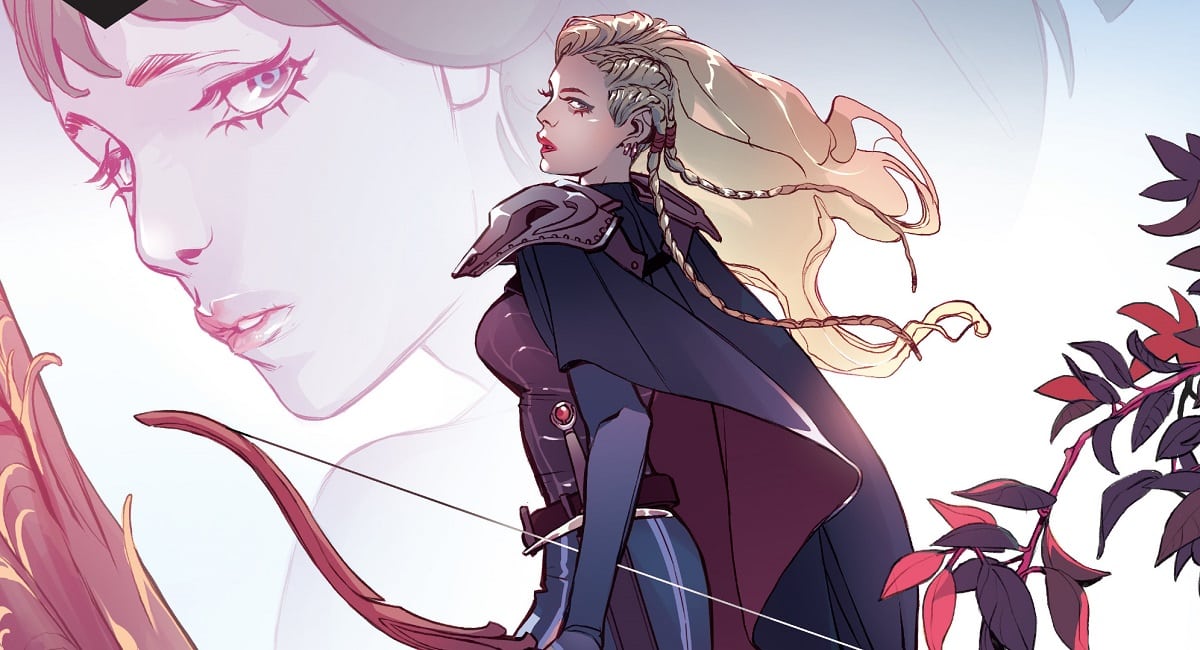
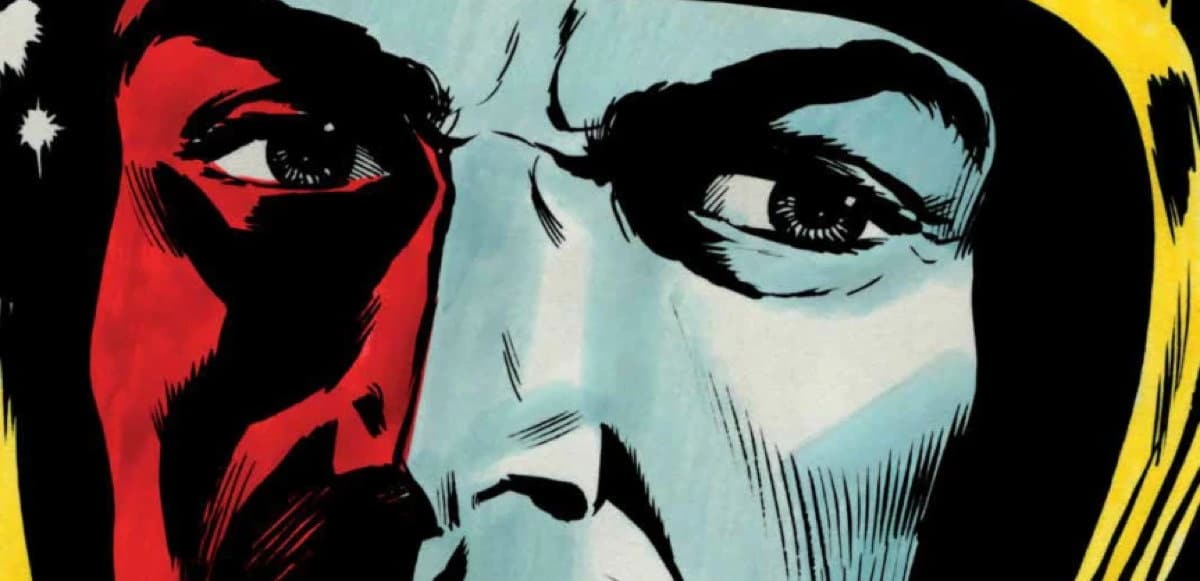
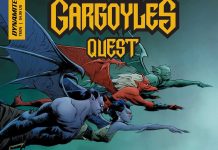






I have the utmost respect for IDW: lots of quality books, Yoe, made me buy My Little Ponies comics because they were so good but, when it comes to super heroes franchises restrated, be it Rom, Micronauts or Thunder Agents, everytime, that was a disaster. With someone so fond of Rom at their helm, I just can’t believe IDW so missed the point of the serie.
But hey, it’s just details, everything else was top notch!
A great interview with a true class act. Hopefully Mr. Ryall does remain in comics; whomever is lucky enough to get him, will have not only one of the best editors in the business but a genuinely kind and forthright person. Can’t say enough good things.
class act, that guy hired and supported someone who said an incredibly insensitive disgusting and hurtful comment. And that’s ignoring all the other spiteful, harresing, racist crap the writer made.
And he has the gall to call them idiots for them calling IDW out on it.
That guys a dick.
This was a great interview and overall I was very pleased with Ryall’s tenure as EIC at IDW. Were there some mis-steps? Yes, big ones (his answer to your Sitterson question did little to quell my nausea over how that whole incident was handled and the smear it painted over all Joe fans) but IDW has done amazing things for the industry, like the Artist Editions, bringing back Transformers, bringing Larry Hama back to Joe, TMNT, etc. that I can overlook all that, for the most part.
A little surprised the 91% drop in revenue in a single year for IDW thing never came up. Thats a pretty good reason to “ask” him for his resignation.
How many comments have you been deleting Heidi?? This was just another puff piece. Everyone knows he got fired
Look, Sitterson was wrong and deserved to be fired. The fact that Ryall defended him and put him on another book speaks to Ryall’s character.
Goodbye and good riddance! Don’t let the door hit you in the arse on your way out!
Can you people even add? It was a 91% drop in a SINGLE QUARTER. You can’t even get the basic facts straight.
Source: https://icv2.com/articles/news/view/38462/idw-reports-lower-publishing-revenues-profits-quarter
Sheesh.
Ms. McDonald, you’re deflecting. The basic fact is that profits dropped at IDW and you didn’t think it was an important question to ask. With all due respect, this was a softball interview with your buddy. Everyone already assumes that Mr. Ryall was shown the door. After 14 years, most people don’t just leave their dream job with nothing better lined up.
Despite whatever missteps Mr. Ryall might have made at IDW however, I still appreciate his enthusiasm for ROM, and his effort to bring that character back to comics.
Wonderful fact-free puff piece. When you have some of the biggest licenses in the industry and can’t sell 3000 copies with them, you deserve to lose your job.
Just kidding! Nothing to see here! Just a guy leaving his job for no reason, coincidentally right after his company’s horrendous sales figures are announced! What’s your favorite Pokemon, Chris? Wow, cool!
So… not only is it EVERYONE elses’ fault that the sales went down at IDW, but it’s EVERYONE elses’ fault that we cant interpret your softball article omitting details.
If your socks are all in a snit that WE all can’t add, why not spend an entire sentence addressing it?
It’s deflecting to point out that the entire numerical premise of your argument is totally incorrect? Riiiiiiiiight.
“Publisher fires trusted, respected editor in chief after one bad quarter” Riiiiiiiiiiiiight.
I’m actually getting a kick out of the foaming Alex Jones-level conspiracy theories here but out of respect for Ryall and IDW I’m closing comments.
If anyone would like to actually DISCUSS FACTS – VERIFIABLE DOCUMENTED FACTS – feel free to contact me.
Comments are closed.